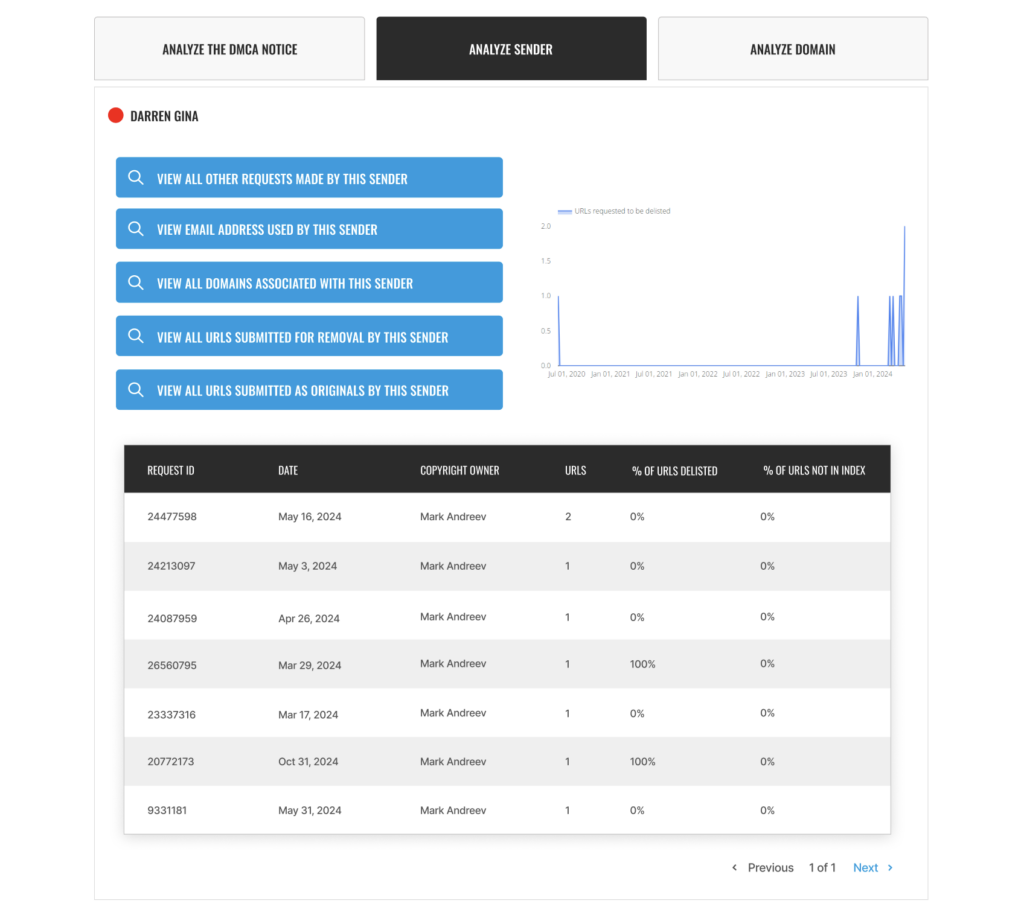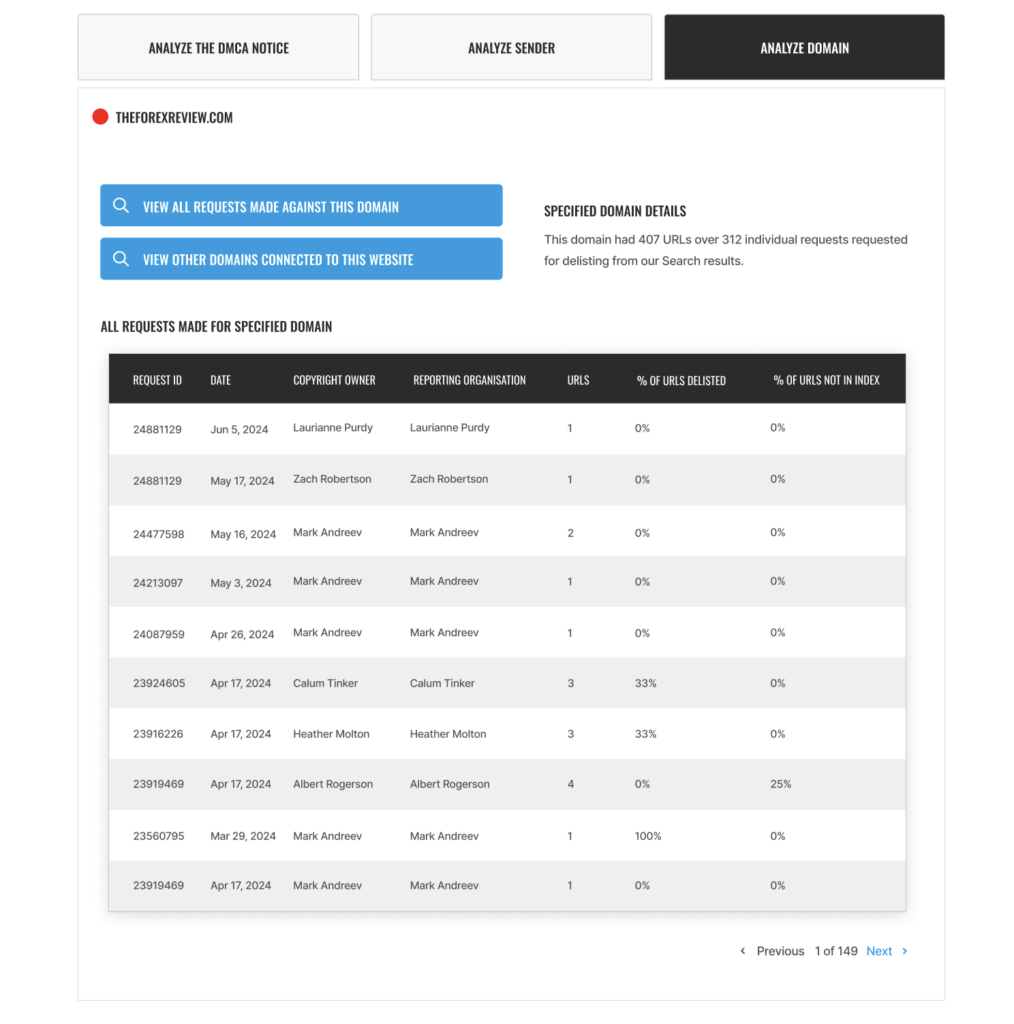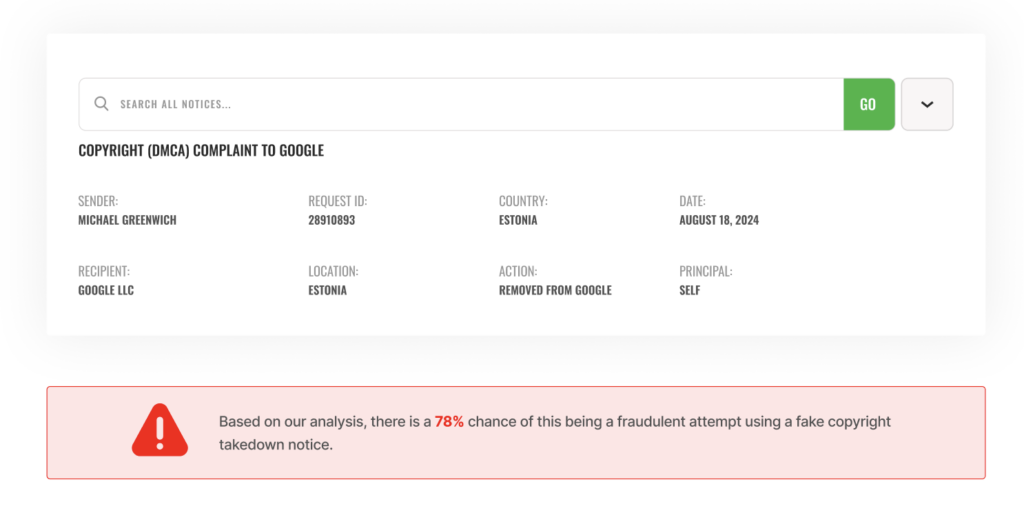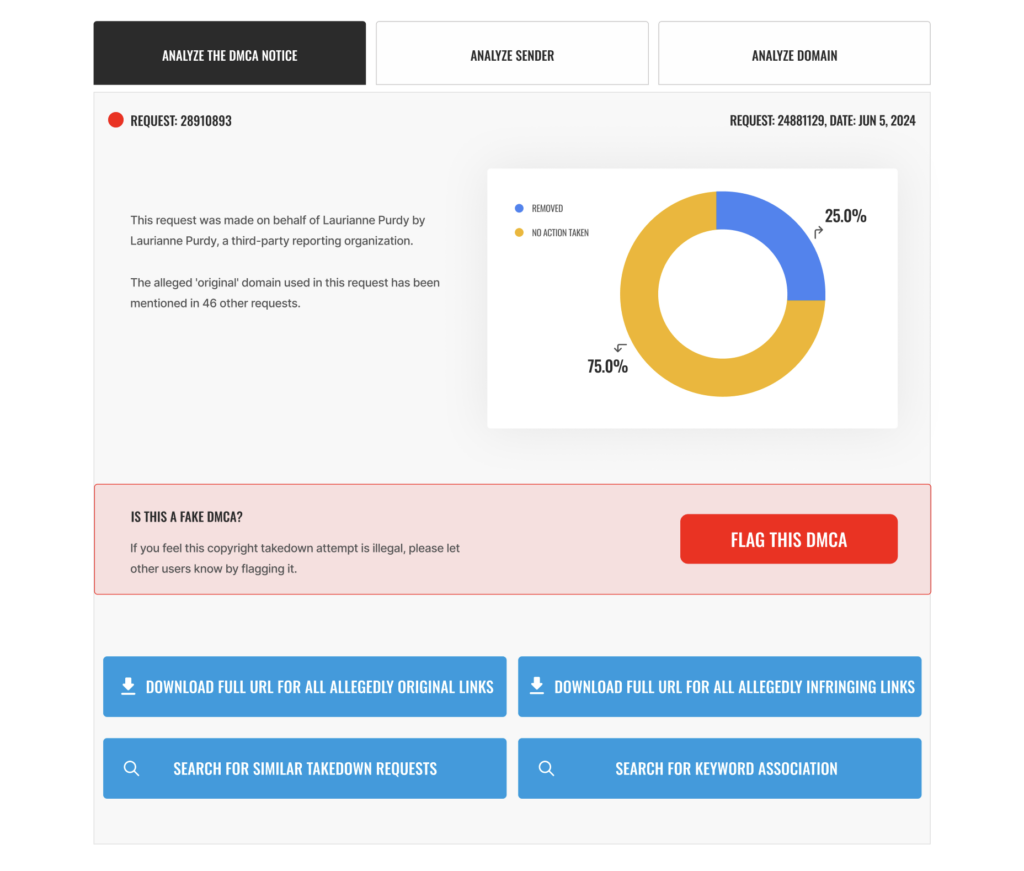What Happened?
Tickmill Limited, a well-known player in the forex industry, has recently come under scrutiny for allegedly attempting to suppress damaging information about its past. While Tickmill presents itself as a reputable broker with global operations, a deeper look reveals a series of concerning allegations that the company has reportedly worked to keep out of the public eye. These accusations range from questionable business practices to regulatory issues in various jurisdictions.
Several sources, including prominent forex watchdogs, have raised concerns about Tickmill’s history. Reports suggest that the company has employed tactics to censor negative news, including issuing legal threats and removing unfavorable reviews or content that tarnishes its image. This effort to maintain a clean reputation, however, raises further suspicion about the integrity of the company.

Traders and investors are advised to exercise caution when dealing with firms that engage in such tactics. While Tickmill continues to market itself as a transparent and customer-centric broker, its alleged attempts to silence critics may be indicative of deeper, unresolved issues. For a more detailed account of these claims, visit EarnForex, which offers an in-depth review of Tickmill’s track record .

Analyzing the Fake Copyright Notice(s)
Our team collects and analyses fraudulent copyright takedown requests, legal complaints, and other efforts to remove critical information from the internet. Through our investigative reporting, we examine the prevalence and operation of an organized censorship industry, predominantly funded by criminal entities, oligarchs, and disreputable businesses or individuals. Our findings allow internet users to gain insight into these censorship schemes’ sources, methods, and underlying objectives.
List of Fake Copyright Notices for Tickmill Limited
| Number of Fake DMCA Notice(s) | 1 |
| Lumen Database Notice(s) | https://lumendatabase.org/notices/43974799 |
| Sender(s) | BlueCore Technologies llc |
| Date(s) | Aug 20, 2024 |
| Fake Link(s) Used by Scammers | https://www.tickmill.com/ |
| Original Link(s) Targeted | https://www.earnforex.com/forex-brokers/Tickmill/ |
Evidence and Screenshots

How do we investigate fake DMCA notices?
To accomplish this, we utilize the OSINT Tool provided by FakeDMCA.com and the Lumen API for Researchers, courtesy of the Lumen Database.
FakeDMCA.com is the work of an independent team of research students and cybersecurity professionals, developed under Project UnCensor. Their OSINT Tool, designed to uncover and analyze takedown notices, represents a significant step forward in combating these abusive practices. It has become a valuable resource, increasingly relied upon by journalists and law enforcement agencies across the United States.
Lumen, on the other hand, is an independent research initiative dedicated to studying takedown notices and other legal demands related to online content removal. The project, which operates under the Berkman Klein Center for Internet & Society at Harvard University, plays a crucial role in tracking and understanding the broader implications of such requests.
What was Tickmill Limited trying to hide?
Tickmill Limited is a global forex and CFD broker offering trading services to both retail and institutional clients. With operations spanning multiple jurisdictions, the broker is licensed and regulated by several authorities, including the UK’s Financial Conduct Authority (FCA), the Cyprus Securities and Exchange Commission (CySEC), and the Seychelles Financial Services Authority (FSA). Tickmill markets itself as a competitive broker with low trading costs, superior technology, and excellent customer service. The company has expanded its operations over the years, making its mark in the forex trading community.
However, despite its reputation as a well-established broker, Tickmill’s image has been tarnished by accusations and negative feedback from traders. Some of the concerns revolve around its operational transparency and business ethics. In recent years, allegations of questionable practices have emerged, leading to suspicions that the company may not be as reputable as it claims. More alarming is Tickmill’s apparent efforts to suppress negative information and censor damaging reviews online. These actions raise the question: what exactly is Tickmill trying to hide?
2. Complaints and Allegations Against Tickmill
Numerous traders have expressed dissatisfaction with Tickmill’s services, and many of these complaints point to deeper issues within the company. The following are some of the key grievances and allegations raised by clients:
- Withdrawal Issues: One of the most common complaints against Tickmill involves delays in processing withdrawals. Traders have reported waiting extended periods to access their funds, which has led to frustration and concerns about the company’s liquidity. In some cases, traders have alleged that their withdrawal requests were outright rejected, raising red flags about Tickmill’s transparency in handling client funds.
- Slippage and Poor Order Execution: Traders have also complained about significant slippage during trading, where the price at which an order is executed differs from the intended price. While slippage can occur in volatile market conditions, there have been allegations that Tickmill manipulates prices to its advantage, particularly during high volatility, such as news releases. Poor order execution and price manipulation are serious issues that can severely impact traders’ profitability, especially for those engaged in high-frequency or short-term trading strategies.
- Unresponsive Customer Support: Many clients have voiced frustration over Tickmill’s customer support services, reporting long wait times or a complete lack of response. This issue is exacerbated when traders face technical problems or difficulties with their accounts, as prompt and efficient support is critical in such situations. The lack of adequate customer service raises concerns about Tickmill’s ability to maintain its commitment to customer-centric services.
- Unfair Trading Conditions: Allegations have surfaced suggesting that Tickmill engages in unfair trading practices. Some traders believe the broker is involved in stop-hunting, a strategy where brokers manipulate price movements to trigger stop-loss orders placed by clients. These actions create an environment where traders are systematically disadvantaged, casting doubt on the company’s commitment to providing fair and transparent trading conditions.
3. Regulatory Concerns
Despite being regulated by well-known authorities such as the FCA and CySEC, Tickmill’s operations in certain offshore jurisdictions, particularly Seychelles, have raised concerns. Regulation in offshore locations tends to be less stringent compared to more developed markets, creating opportunities for brokers to operate with less oversight.
- Offshore Operations and Loopholes: Tickmill’s licensing in Seychelles is a point of contention for some critics who argue that brokers operating in such jurisdictions may not be held to the same regulatory standards as those licensed in the UK or the European Union. Offshore licenses often come with fewer reporting requirements, less robust client protection measures, and limited regulatory recourse in case of disputes. This has led to suspicion that Tickmill uses its offshore base to operate in ways that may not align with the ethical standards expected from a regulated broker.
- Transparency and Compliance Issues: There have been allegations that Tickmill has not been fully transparent in disclosing its financial operations or adhering to all necessary compliance protocols. Some critics argue that the company’s regulatory adherence may be more lax in regions where oversight is minimal, raising doubts about its overall commitment to fair trading and client protection.
4. Alleged Attempts to Censor Negative Reviews
What is perhaps more troubling than the complaints themselves is the reported effort by Tickmill to suppress these negative reviews and complaints. Over time, several industry watchdogs, forums, and independent review platforms have indicated that Tickmill employs tactics to censor damaging news or remove critical feedback. This includes both legal and non-legal methods designed to suppress information that could damage the company’s reputation. Here are a few examples of these tactics:
- Removal of Unfavorable Reviews: Multiple traders have claimed that their negative reviews about Tickmill were taken down from popular forex review platforms without explanation. This suggests that the company may be exerting influence over these sites to maintain a positive public image. While removing defamatory or false reviews can be justified, the systematic removal of legitimate complaints is a worrying sign of potential information manipulation.
- Legal Threats and Intimidation: There are also reports of Tickmill issuing legal threats to websites, bloggers, and users who publish unfavorable information about the broker. These threats aim to silence critics and deter individuals from publicly discussing their negative experiences. The use of legal intimidation to prevent free speech and open dialogue only raises further suspicions about what Tickmill is trying to hide.
- Blocking Negative Press: It has been alleged that Tickmill actively works to limit the spread of damaging articles and press coverage. Some industry insiders believe that the broker engages in public relations campaigns designed to downplay its negative history while pushing positive content to the forefront. By doing so, Tickmill attempts to shape the narrative around its brand, but at the cost of transparency and openness.
These actions raise the critical question: what exactly is Tickmill trying to conceal? The combination of regulatory concerns, complaints of unfair trading conditions, and efforts to suppress criticism suggest that there may be deeper, systemic issues within the company. The broker’s attempts to control its public image through censorship and intimidation hint at a lack of accountability, which could indicate further undisclosed problems that have yet to surface.
For prospective traders, the ability to access honest feedback and reviews is essential to making informed decisions. The fact that Tickmill is allegedly involved in suppressing such information calls into question the reliability of its marketing claims and its true commitment to transparency.
Tickmill Limited may appear to be a competitive and reputable broker on the surface, but the growing number of complaints and its efforts to suppress negative information warrant a closer look. Traders should approach the broker with caution and take the time to research independent, uncensored reviews to ensure they understand the risks involved. While Tickmill may provide certain advantages, such as low fees and advanced trading platforms, its questionable actions behind the scenes raise important concerns that should not be ignored.
For those interested in learning more, websites like EarnForex provide comprehensive reviews and user feedback, offering a more balanced view of Tickmill’s operations and practices.
Only Tickmill Limited benefits from this crime.

Since the fake copyright takedown notices were designed to remove negative content for Tickmill Limited from Google, we assume Tickmill Limited or someone associated with Tickmill Limited is behind this scam. It is often a fly-by-night Online Reputation agency working on behalf of Tickmill Limited. In this case, Tickmill Limited, at best, will be an “accomplice” or an “accessory” to the crime. The specific laws may vary depending on the jurisdiction. Still, the legal principle generally holds that if you actively participate in planning, encouraging, or facilitating a crime, you can be charged with it, even if you did not personally commit it.
How do we counteract this malpractice?
Once we ascertain the involvement of Tickmill Limited (or actors working on behalf of Tickmill Limited), we will inform Tickmill Limited of our findings via Electronic Mail.
Our preliminary assessment suggests that Tickmill Limited may have engaged a third-party reputation management agency or expert, which, either independently or under direct authorization from Tickmill Limited, initiated efforts to remove adverse online content, including potentially fraudulent DMCA takedown requests. We will extend an opportunity to Tickmill Limited to provide details regarding their communications with the agency or expert, as well as the identification of the individual(s) responsible for executing these false DMCA notices.
Failure to respond in a timely manner will necessitate a reassessment of our initial assumptions. In such an event, we will be compelled to take appropriate legal action to rectify the unlawful conduct and take the following steps –
- Inform Google about the fraud committed against them.
- Inform the victims of the fake DMCA about their websites.
- Inform relevant law enforcement agencies
- File counter-notices on Google to reinstate the ‘removed’ content
- Publish copies of the ‘removed’ content on our network of 50+ websites
By investigating the fake DMCA takedown attempts, we hope to shed light on the reputation management industry, revealing how Tickmill Limited and companies like it may use spurious copyright claims and fake legal notices to remove and obscure articles linking them to allegations of fraud, tax avoidance, corruption, and drug trafficking…
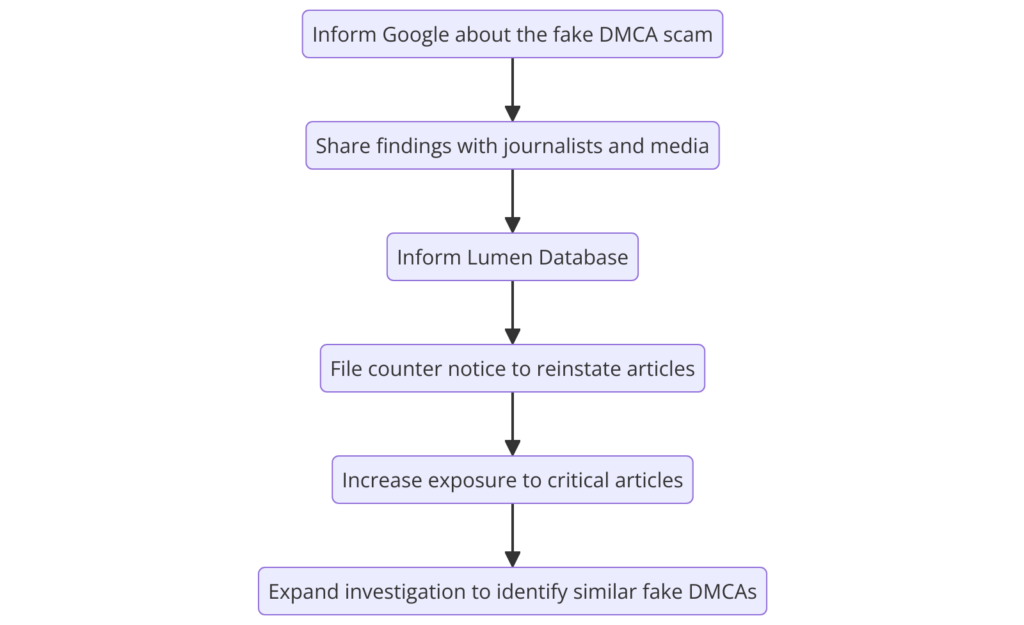
Since Tickmill Limited made such efforts to hide something online, it seems fit to ensure that this article and our original review of Tickmill Limited, including but not limited to user contributions, remain a permanent record for anyone interested in Tickmill Limited.
A case perfect for the Streisand effect…
Potential Consequences for Tickmill Limited
Under Florida Statute 831.01, the crime of Forgery is committed when a person falsifies, alters, counterfeits, or forges a document that carries “legal efficacy” with the intent to injure or defraud another person or entity.
Forging a document is considered a white-collar crime. It involves altering, changing, or modifying a document to deceive another person. It can also include passing along copies of documents that are known to be false. In many states in the US, falsifying a document is a crime punishable as a felony.

Additionally, under most laws, “fraud on the court





